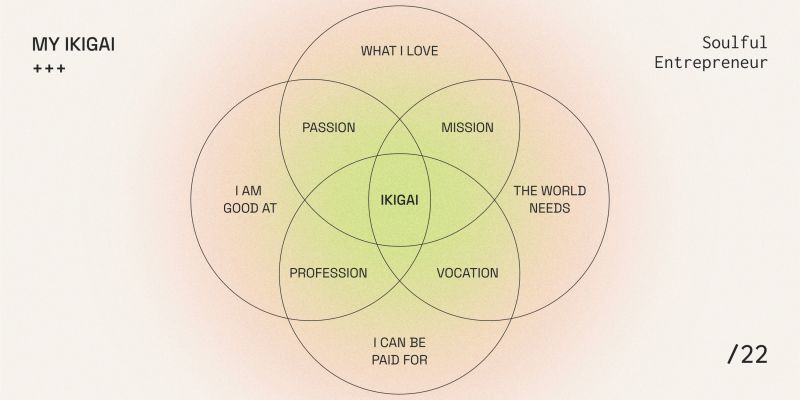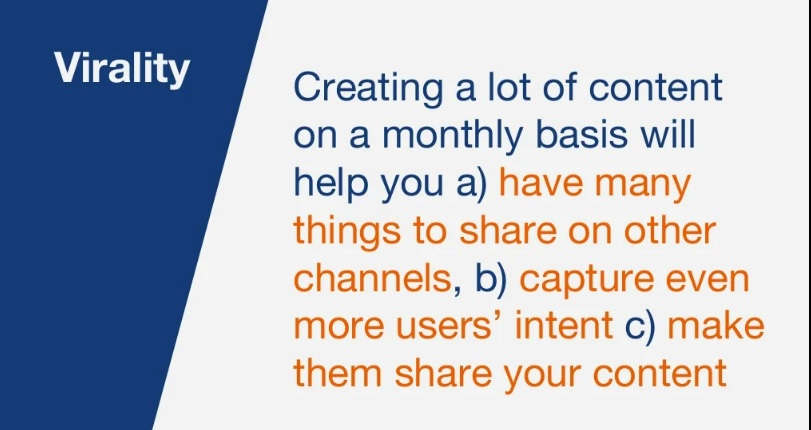Are you struggling to get your blog noticed among the sea of content on the internet? If so, incorporating blogging and SEO strategies into your routine can make all the difference.
By focusing on techniques like on-page optimization and technical SEO, you can improve your website’s visibility and climb the ranks of search engine results pages. Best of all, you don’t need a big budget or a team of experts to make it happen.
With some willingness to learn and a commitment to your blog’s success, you can start attracting more traffic and engagement than ever before.

Source: Matt Gray/Linkedin
A topic that seems to be at the forefront of everyone’s minds is why blogging for SEO is important. Not only for SEO ranking but for marketing and brand building as well. Most people consider blogging a form of content marketing, which it most definitely is!
The process of blogging allows you to share your knowledge and expertise with your audience. It also allows you to build relationships with your customers/clients and prospects by providing them with valuable information about your products/services or industry.
Blogging allows you to gain exposure for your business, build authority in your field, establish yourself as an expert, and create new revenue streams through affiliate links or advertisements on your website.
It has been said that blogging is not easy. This is true. The problem with blogging is not the actual writing of the blog post but the research and planning that makes it possible.
The concept of writing a blog post is as follows:
Write down your thoughts on paper or in a notebook.
Choose an angle for your topic.
Determine the number of words required and the length of each section.
Start writing!
This isn’t a bad process, but it’s missing one crucial step: research!
Blogging and SEO Challenges
Lack of Time
John Grisham had a writing schedule long before he was famous. He woke up at 5:00 each morning to start writing for an hour before heading to work.
“Write a page every day. That’s about 200 words, or 1,000 words a week. Do that for two years, and you’ll have a novel that’s long enough. Nothing will happen until you produce at least one page per day.”
Writer’s Block
Writing a blog can appear daunting at first. You want to write something useful and valuable to your readers, but where do you begin? What do they want to read? How do you know if you should discuss a particular topic or if it has already been discussed?“Amateurs sit and wait for inspiration; the rest of us get up and go to work.” Stephen King
Crystal-Clear Focus
Writing blog posts can be difficult. I know. You need to stay on topic, write for the internet, write in the present tense, and most importantly, come up with topics that your readers will find interesting.
Most of us, at some point, have craved an easier way to write without all these constraints. I believe this is one of the reasons why Facebook was created: we like our news quick, easy, and bite-sized!
Once you figure out your writing routine, it’s time to blog for business and turn yourself into a content machine.
Publishing Velocity – the Unfair Competitive Edge
Ashwin Satyanarayana details the importance of publishing velocity and the rate at which a publication is published (i.e., the consistency with which you post new content). The more frequently you publish, the faster your content gets indexed, found, and the more the spiders visit your site.

Source: Dimitrisdrakatos.com
Blog Content Length and How it Impacts SEO
Marta Szyndlar, a content marketing specialist at Surfer, offers the following advice on determining the ideal blog post length for SEO:
“SEO” is about data. There is no single answer to how long a blog article should be. No “perfect” word count can compete with keyword research.
SEO Blog length varies, but longer blog posts are not always better than shorter posts. A lengthy blog post doesn’t guarantee better results, just like shorter blog posts aren’t a guaranteed failure. It all depends on the topic at hand.
Analyzing your competition and determining user intent will allow you to check if the content length is a ranking factor for your keyword. And if it is, which length should you aim for.”
Worth further reading:
5 Content Elements More Important Than Word Count
Blog Content Quality is Just as Important as Quantity
Ben Goodey, founder, writer, and host at How the F*ck explains:
“For your content to rank #1, it must go the extra mile (how to be better).
Here’s How I Make my Content Better:
1. Length: Making it longer than the number one article seems to have a significant impact.
2. Completeness: Take the top five articles (the ones I mentioned in point 5) and ensure you include every heading/section they did. Now your articles cover everything they do in one place.
3. Uniqueness: Go the extra mile by running a survey, including new statistics you’ve covered, or interviewing an expert to include. This goes a long way to organically building backlinks, too.
4. Ease of reading: Add many ‘summaries’ (Investopedia is a master at this) and make the titles skimmable.
5. Extra content: I like to add a FAQs section that answers all the ‘people also ask’ questions Google surfaces. That way, you increase your article’s length and usefulness while capturing more search volume.”
Blog Post Optimization
When starting a new blog, getting your audience’s attention can be hard. You have to fight for organic views against all of the established sites that have been around for years. Even once you’ve established yourself, it’s still difficult to get comparisons against your competitors, especially when trying to make it in a niche with lots of similar blogs.
Luckily, there are several steps you can take to ensure your site is outranking and outsmarting your competitors. You first need to visit the site of your top competitor(s) to see what they’re doing right and wrong in order to decide how you’ll build your blog from the ground up. Here are some tips (by WPbeginner) for optimizing your blog’s ranking capabilities:
Use Categories and Tags to Organize Content
Categories and tags help you organize your content for your readers, search engines, and yourself.
Write an Effective Blog Post Title
“The title of your blog post is extremely important for search rankings. A good blog post title increases your article’s relevance to the search query. More importantly, it motivates users to click on your article when they see it in the search results.”
Make Your Articles Easier to Read
A good user experience is essential to search engines. Articles that are easy to read tend to rank higher than those that are not optimized.
Are Ultimate Guides Dead?
Digital marketing speaker and SEO specialist Sam Edwards writes:
“The answer isn’t as clear-cut as you might think.
While they’ve certainly lost some of their novelty, they aren’t exactly ineffective.
The key is understanding where they add value and how to best apply them today.
The word “ultimate” means last, furthest, maximum, conclusive, or decisive. It’s supposed to be the final, total, greatest, or best of its kind. It’s the most extreme, better than everything else that’s out there.
The problem is that we’ve watered down the word “ultimate” to the point that it doesn’t mean anything. And when everything is the greatest or best of its kind, nothing is.
When there are 217 different “ultimate guide to online marketing” posts, there’s no longer much-perceived value. Even if yours truly is the ultimate resource, how would anyone know?
It’s not any individual content creator’s problem, but ultimate guides are like the boy who cried wolf. Readers have seen the phrase so often that they won’t believe it when they actually stumble upon an extremely valuable piece of content.
You have to find a way to make people pay attention. You can’t just create the 99th “Ultimate Guide to Investing” and expect it to generate value for your brand. You have to be willing to create fresh and exciting content.”
Create ‘Listicles’ that Stand Out
Avoid being an armchair analyst. According to Ryan Law, VP of Content at Animalz, you can improve your next list article by following these five simple steps:
- Develop new selection criteria.
- Convince the reader by outlining your thought process.
- Share personal experience to demonstrate credibility.
- Lean on the experiences of others when personal experience is impossible.
- Make a single, opinionated recommendation.
Are you struggling to come up with blog content ideas?
Try Hubspots’ blog idea generator free tool. Use it with caution, though.
Closing Thoughts
Bogging and SEO go hand in hand, and if you want to boost your online visibility and reach a wider audience, you should incorporate blogging into your SEO strategy.
By creating high-quality, informative, and optimized blog posts, you can improve your website’s chances of appearing at the top of search engine results pages and ultimately drive more traffic to your site.
Remember that blogging for SEO is a long-term strategy that requires dedication, effort, and continuous refinement, but the benefits are worth it. So start writing and optimizing your blog posts today, and watch your online presence grow!
Ready to take your blogging and SEO strategy to the next level? Contact Flying V Group today! Our team of experts can help you optimize your website and create a content strategy that will drive more traffic to your site. So don’t wait any longer – contact us now to learn more about our services and start seeing real results!






0 Comments